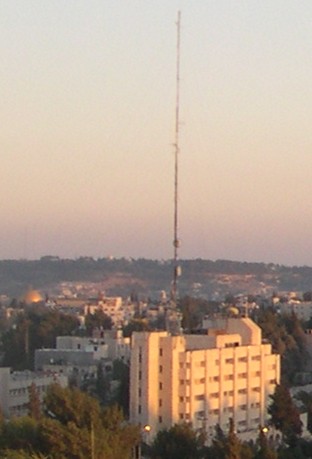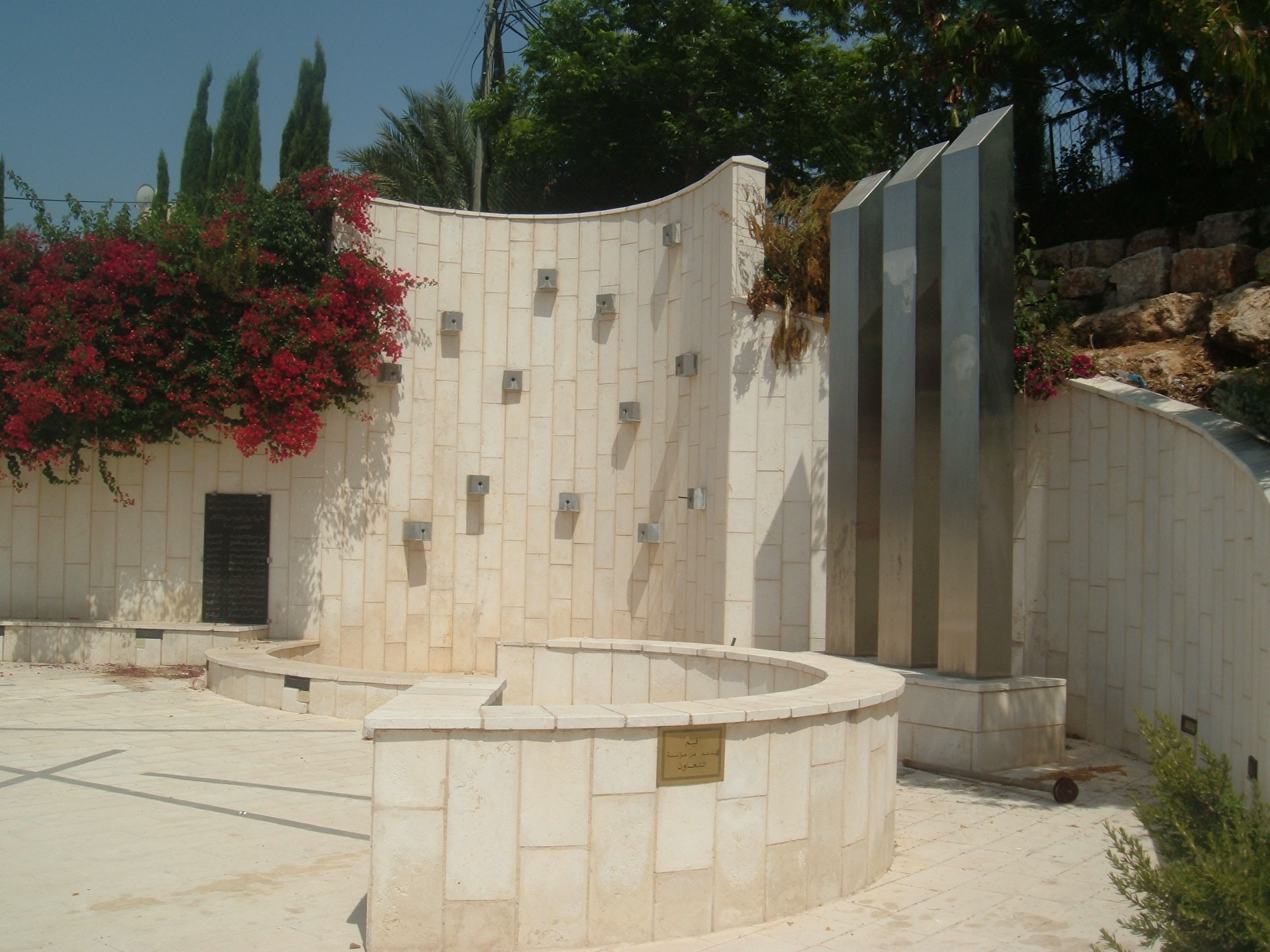|
Kerem Atzmona
Kerem Atzmona ( he, כרם עצמונה) was an unauthorized Israeli outpost in the Gush Katif settlement bloc, located in the south-west edge of the Gaza Strip, and evacuated as part of Israel's unilateral disengagement plan of 2005. History Karem Atzmona founded on Tu Bishvat in 2001, was located adjacent to the settlement of Bnei Atzmon. The settlement was never legally recognized by the Israeli government. The history of Kerem Atzmona starts prior to the outbreak of the Second Intifada. Between the settlements of Morag and Bnei Atzmon, within Gush Katif, lied several thousand dunams of unused land that until a decade earlier had been a vineyard (kerem in Hebrew translates to vineyard) of Bnei Atzmon. In the summer of 2000, second generation children of the settlement decided to hold a summer camp on the plateau which is sixty meters above sea level. A few months later in the fall, before the Jewish holiday of Rosh Hashana (and before the October 2000 riots), two familie ... [...More Info...] [...Related Items...] OR: [Wikipedia] [Google] [Baidu] |
Israeli Outpost
In Israeli law, an outpost ( he, מאחז, ''Ma'ahaz'' lit. "a handhold") is an unauthorized or illegal Israeli settlement within the West Bank, constructed without the required authorization from the Israeli government in contravention of Israeli statutes regulating planning and construction. In Israeli law, outposts are distinguished from settlements authorized by the Israeli government. This distinction between illegal outposts and "legal" settlements is not endorsed by international law, which considers both a violation of the norms, governing belligerent occupations, applicable to the Israeli-occupied West Bank. Outposts appeared after the 1993 Oslo I Accord, when the Israeli government made commitments to freeze the building of new settlements. Although outposts were not officially supported by the government, Israeli public authorities and other government bodies played a major role in establishing and developing them, according to the 2005 Sasson Report, commissioned by ... [...More Info...] [...Related Items...] OR: [Wikipedia] [Google] [Baidu] |
Rosh Hashana
Rosh HaShanah ( he, רֹאשׁ הַשָּׁנָה, , literally "head of the year") is the Jewish New Year. The biblical name for this holiday is Yom Teruah (, , lit. "day of shouting/blasting") It is the first of the Jewish High Holy Days (, , "Days of Awe"), as specified by Leviticus 23:23–25, that occur in the late summer/early autumn of the Northern Hemisphere. Rosh Hashanah begins a ten-day period of penitence culminating in Yom Kippur, as well as beginning the cycle of autumnal religious festivals running through Sukkot and ending in Shemini Atzeret. Rosh Hashanah is a two-day observance and celebration that begins on the first day of Tishrei, which is the seventh month of the ecclesiastical year. In contrast to the ecclesiastical lunar new year on the first day of the first month Nisan, the spring Passover month which marks Israel's exodus from Egypt, Rosh Hashanah marks the beginning of the civil year, according to the teachings of Judaism, and is the traditional anniv ... [...More Info...] [...Related Items...] OR: [Wikipedia] [Google] [Baidu] |
Israeli Police
The Israel Police ( he, משטרת ישראל, ''Mišteret Yisra'el''; ar, شرطة إسرائيل, ''Shurtat Isrāʼīl'') is the civilian police force of Israel. As with most other police forces in the world, its duties include crime fighting, traffic control, maintaining public safety, and counter-terrorism. It is under the jurisdiction of the Minister of Public Security. The National Headquarters of the Israel Police is located at Kiryat HaMemshala in Jerusalem. The Israel Police operates throughout Israel, the Area C of the West Bank and the Golan Heights, in all places in which Israel has civilian control. It is the sole civilian law enforcement agency in Israel: there are no municipal or regional police forces, though some municipalities operate municipal enforcement units that deal with low-level offenses and provide additional security and as such have the power to issue fines, but do not have police authority. In an emergency, the police can be reached by dial ... [...More Info...] [...Related Items...] OR: [Wikipedia] [Google] [Baidu] |
Israeli Army
The Israel Defense Forces (IDF; he, צְבָא הַהֲגָנָה לְיִשְׂרָאֵל , ), alternatively referred to by the Hebrew-language acronym (), is the national military of the State of Israel. It consists of three service branches: the Israeli Ground Forces, the Israeli Air Force, and the Israeli Navy. It is the sole military wing of the Israeli security apparatus, and has no civilian jurisdiction within Israel. The IDF is headed by the Chief of the General Staff, who is subordinate to the Israeli Defense Minister. On the orders of David Ben-Gurion, the IDF was formed on 26 May 1948 and began to operate as a conscript military, drawing its initial recruits from the already-existing paramilitaries of the Yishuv—namely Haganah, the Irgun, and Lehi. Since its formation shortly after the Israeli Declaration of Independence, the IDF has participated in every armed conflict involving Israel. While it originally operated on three major fronts—against Lebanon ... [...More Info...] [...Related Items...] OR: [Wikipedia] [Google] [Baidu] |
Children's Playground
A playground, playpark, or play area is a place designed to provide an environment for children that facilitates play, typically outdoors. While a playground is usually designed for children, some are designed for other age groups, or people with disabilities. A playground might exclude children below (or above) a certain age. Modern playgrounds often have recreational equipment such as the seesaw, merry-go-round, swingset, slide, jungle gym, chin-up bars, sandbox, spring rider, trapeze rings, playhouses, and mazes, many of which help children develop physical coordination, strength, and flexibility, as well as providing recreation and enjoyment and supporting social and emotional development. Common in modern playgrounds are ''play structures'' that link many different pieces of equipment. Playgrounds often also have facilities for playing informal games of adult sports, such as a baseball diamond, a skating arena, a basketball court, or a tether ball. Public playground ... [...More Info...] [...Related Items...] OR: [Wikipedia] [Google] [Baidu] |
Mikveh
Mikveh or mikvah (, ''mikva'ot'', ''mikvoth'', ''mikvot'', or (Yiddish) ''mikves'', lit., "a collection") is a bath used for the purpose of ritual immersion in Judaism to achieve ritual purity. Most forms of ritual impurity can be purified through immersion in any natural collection of water. However, some impurities, such as a zav, require "living water", such as springs or groundwater wells. Living water has the further advantage of being able to purify even while flowing, as opposed to rainwater which must be stationary to purify. The ''mikveh'' is designed to simplify this requirement, by providing a bathing facility that remains in contact with a natural source of water. In Orthodox Judaism, these regulations are steadfastly adhered to; consequently, the mikveh is central to an Orthodox Jewish community. Conservative Judaism also formally holds to the regulations. The existence of a mikveh is considered so important that a Jewish community is required to construct ... [...More Info...] [...Related Items...] OR: [Wikipedia] [Google] [Baidu] |
Synagogue
A synagogue, ', 'house of assembly', or ', "house of prayer"; Yiddish: ''shul'', Ladino: or ' (from synagogue); or ', "community". sometimes referred to as shul, and interchangeably used with the word temple, is a Jewish house of worship. Synagogues have a place for prayer (the main sanctuary and sometimes smaller chapels), where Jews attend religious Services or special ceremonies (including Weddings, Bar Mitzvahs or Bat Mitzvahs, Confirmations, choir performances, or even children's plays), have rooms for study, social hall(s), administrative and charitable offices, classrooms for religious school and Hebrew school, sometimes Jewish preschools, and often have many places to sit and congregate; display commemorative, historic, or modern artwork throughout; and sometimes have items of some Jewish historical significance or history about the Synagogue itself, on display. Synagogues are consecrated spaces used for the purpose of Jewish prayer, study, assembly, a ... [...More Info...] [...Related Items...] OR: [Wikipedia] [Google] [Baidu] |
October 2000 Riots (Israel)
The October 2000 protests, also known as October 2000 events, were a series of protests in Arab villages in northern Israel in October 2000 that turned violent, escalating into rioting by Israeli Arabs The Arab citizens of Israel are the largest ethnic minority in the country. They comprise a hybrid community of Israeli citizens with a heritage of Palestinian citizenship, mixed religions (Muslim, Christian or Druze), bilingual in Arabic an ..., which led to counter-rioting by Israeli Jews and clashes with the Israel Police and ending in the deaths of 13 Arab demonstrators and 1 Israeli Jew.Dan Rabinowitz'October 2000, revisited,'Haaretz 19 October, 2004 The Or Commission was established to investigate the police response to the rioting. Israeli media outlets refer to the episode as ''אירועי אוקטובר 2000'' - the "October 2000 events" while the Arab community refers to it as the "October ignition" (). Background In September 2000, tensions between the police ... [...More Info...] [...Related Items...] OR: [Wikipedia] [Google] [Baidu] |


.jpg)
_mikveh.jpg)
.jpg)
